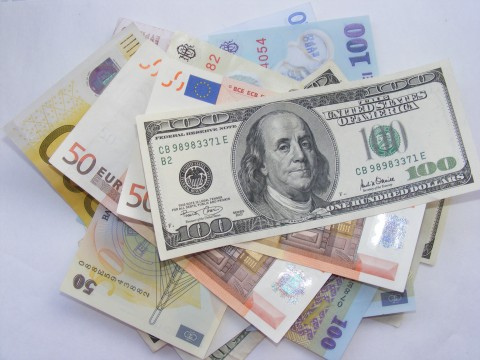Nigeria witnessed a significant uptick in capital inflows, marking a 66.27% surge when juxtaposed with figures from the third quarter of 2023.
The numbers rose from a previous $654.65 million in Q3 2023 to $1.09 billion in the final quarter of the year, signalling a robust recovery and a positive response to the economic strategies President Bola Tinubu’s administration deployed to enhance the nation’s investment appeal.
As documented in the recent report by the National Bureau of Statistics (NBS), this rejuvenation in capital importation underscores the effectiveness of governmental policies and highlights a year-on-year growth.
Comparatively, the Q4 2023 figures slightly surpassed the $1.06 billion milestone achieved in the same period in 2022, presenting a modest year-on-year improvement of 2.62%.
Such a turnaround is symbolic of the resilience of Nigeria’s economic landscape, and the current upswing in capital inflows could be interpreted as investor confidence in the country’s market potential and the administrative direction under President Tinubu.
Investment by type and sector
In a detailed breakdown of Nigeria’s capital importation for Q4 2023, “Other Investment” emerged as the dominant category, capturing the lion’s share of 54.64% or $594.74 million of the total capital inflows.
This was closely followed by Portfolio Investment, which accounted for 28.46% or $309.76 million, while Foreign Direct Investment (FDI) contributed 16.90% or $183.97 million to the mix.
Sector-wise, the production/manufacturing sector led the pack with an impressive $450.11 million, making up 41.35% of the quarter’s total capital inflow.
The banking sector followed suit, securing $283.30 million, or 26.03% of the investments, with the financing sector also making a notable entry at $135.59 million, representing 12.46% of the total capital imported into Nigeria during the period under review.
Origin of foreign capital
During the observed period, the bulk of Nigeria’s capital importation was significantly influenced by investments from the United Kingdom.
This led the chart with a contribution of $267.24 million, representing a 24.55% share of the total inflows.
Mauritius followed closely, channelling $226.18 million into Nigeria’s economy, accounting for 20.78% of the overall capital importation.
The Netherlands also made a substantial impact, with investments amounting to $149.93 million, thus holding a 13.77% share of the total capital imported into the country in Q4 2023.
Investment by states
In the fourth quarter of 2023, Lagos State solidified its position as Nigeria’s premier investment hub, attracting a substantial $771.68 million in capital importation, which accounted for 65.38% of the nation’s total capital inflows.
Following in significance was Abuja (FCT), which drew $370.80 million, representing 34.07% of the overall capital importation.
Rivers State also featured on the investment map, albeit with a modest sum of $6.00 million, making up 0.55% of the total capital imported into Nigeria during this period.
Capital imports by banks
In Q4 2023, Stanbic IBTC Bank Plc emerged as the foremost recipient of importation into Nigeria, amassing $499.45 million, which translates to a commanding 45.88% of the total capital inflows.
Citibank Nigeria Limited secured the second position, attracting $229.06 million or 21.04% of the aggregate capital imported.
Rand Merchant Bank Plc also made a notable entry, garnering $85.85 million and accounting for 7.89% of Nigeria’s total capital importation in the final quarter of the year.
More Insights
- During his international visits, President Bola Tinubu has been inviting global investors to Nigeria, yielding noticeable results as the nation sees a rebound in investment following earlier reluctance.
- The Federal Minister of Information and National Orientation, Mohammed Idris, recently said that these diplomatic endeavours have secured over $15 billion in Foreign Direct Investment (FDI) commitments across diverse sectors of the Nigerian economy.
- Minister Idris pointed out that President Tinubu’s proactive engagements abroad have showcased Nigeria’s commitment to global economic cooperation and spotlighted the country’s immense investment potential.
- Echoing the optimistic outlook on Nigeria’s investment climate, the Governor of the Central Bank of Nigeria (CBN), Yemi Cardoso, recently noted a renewed interest among portfolio investors looking to re-engage with the Nigerian market.
- The latest statistics on capital importation into Nigeria further confirm this positive trend, marking a significant upswing in investor sentiment and participation in the Nigerian economy.

